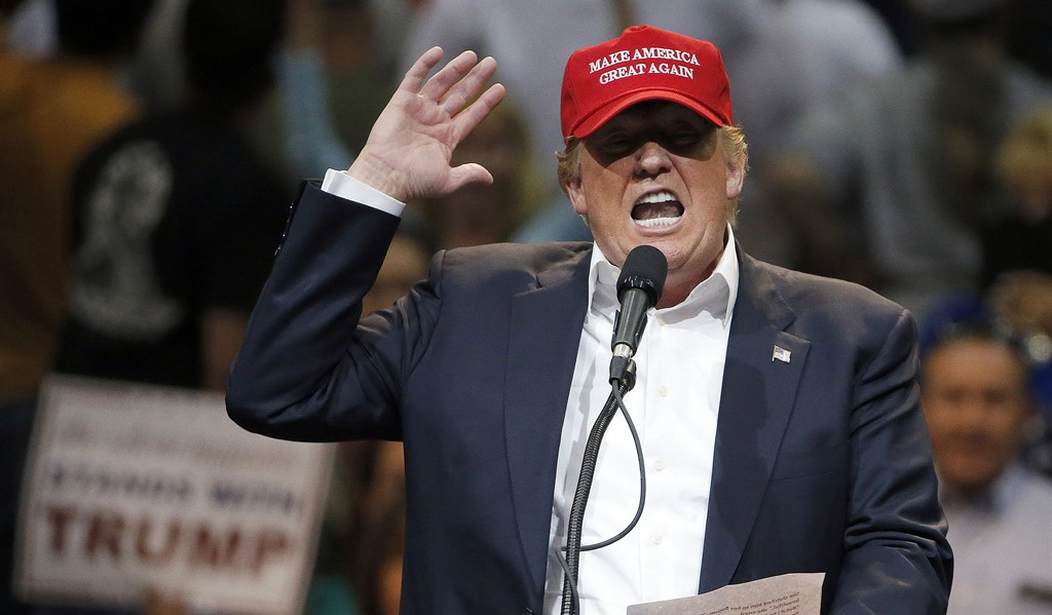A new study by the bipartisan Committee for a Responsible Federal Budget (CRFB) claims Republican presidential candidate Donald Trump’s plan to repeal and replace Obamacare is going to cost roughly $500 billion over 10 years and would cause 21 million Americans to lose their insurance coverage. A closer look reveals CRFB’s report is severely flawed and a wildly inaccurate depiction of Trump’s plan. A fair look at Trump’s proposals, called “Trumpcare” by many, shows the real estate mogul’s health care policies offer many good reforms that would help lower costs and improve the health insurance marketplace.
On a page featured on Trump’s website titled “Healthcare Reform to Make America Great Again,” Trump outlines seven broad health care reform proposals, including repealing Obamacare, allowing health insurance companies to sell policies across state lines, health insurance deductions, enhancing health savings accounts (HSAs), and block-granting Medicaid to the states. CRFB says taken together, these provisions will cost nearly $1.6 trillion and save only about $1.12 trillion, creating a $500 billion deficit. CRFB estimates the “dynamic effects” from economic growth related to repealing Obamacare would likely add another $220 billion in tax revenue, meaning the total cost of Trump’s plan under dynamic scoring is $270 billion.
The two most significant costs under Trumpcare, according to CRFB’s report, will be the repeal of Obamacare-related taxes and the Obamacare-mandated “Medicare savings,” which it estimates to be $880 billion. The most notable savings come from the repeal of federal subsidies for those purchasing insurance in an Obamacare health insurance exchange and the federal government’s share of Medicaid expansion.
CRFB’s report echoes claims made by many critics of Trump’s health care proposals, which are very similar to those offered by other Republican presidential candidates and GOP members of Congress. There are several significant flaws with critics’ claims.
Recommended
First, although CRFB acknowledges Trump’s plan to block-grant Medicaid to the states, which means states would receive a lump sum of money to use for their Medicaid programs in any way they choose, it doesn’t factor any potential Medicaid savings from this move. Toward the end of its report, CRFB acknowledges that block-granting Medicaid “could more than pay for the cost of repealing and replacing Obamacare – though perhaps at the cost of a further reduction in coverage.”
Even that claim is an incredible and important understatement. According to CRFB’s own estimates, which are based on projections made by the Congressional Budget Office (CBO), if block grants were to be set at current levels, growing with the inflation rate, the proposal could save as much as $470 billion over 10 years. If the growth of block-grant funds is tied to per-person spending, also tied to inflation, savings would be as much as $350 billion over 10 years. This means the net savings from Trump’s plan could be between $80 billion and $200 billion.
CRFB says that because Trump’s campaign has yet to provide the details of its Medicaid block- grant program, it can’t factor those savings into its estimates, but choosing to create any sort of an estimate without such an important piece of the puzzle is irresponsible and creates a totally inaccurate picture of what Trump’s plan, as well as the plans of many others who support repealing and replacing Obamacare, will actually look like in its final form.
Second, CRFB doesn’t factor into its estimates any potential savings that would result from Trump’s plan to improve health savings accounts, which could have a revolutionary impact on the U.S. health care system. Under Trumpcare, all Americans would be able to set up a health savings account. Contributions made to HSAs would be completely tax-free and could accumulate over time. Trump’s plan even allows individuals to pass on HSAs to their heirs – without any penalties. HSAs could be used to pay for health insurance or out-of-pocket health care expenses.
HSAs in their current, limited form have already produced notable savings. According to Heartland Institute Senior Fellow Peter Ferrara,“Total HSA costs, including the savings to fully fund the HSA savings account to cover the deductible, have run about 25% less than the costs for traditional, old-fashioned insurance.”
Third, CRFB estimates Trump’s proposal will knock more than 20 million people off of their health insurance plans. That estimate is also inaccurate and irresponsible, because Trump’s Medicaid block-grant program would allow each state to decide exactly how to deal with people who are struggling to pay for health insurance. Further, because the details of Trump’s Medicaid block-grant plan have yet to be released, there’s no accurate way to judge its effects.
If free-market reforms such as those offered by Trump and other Republican presidential candidates and members of Congress are made into law, health care quality and costs will rapidly and remarkably improve, ushering in a new era of health and wealth.
























Join the conversation as a VIP Member